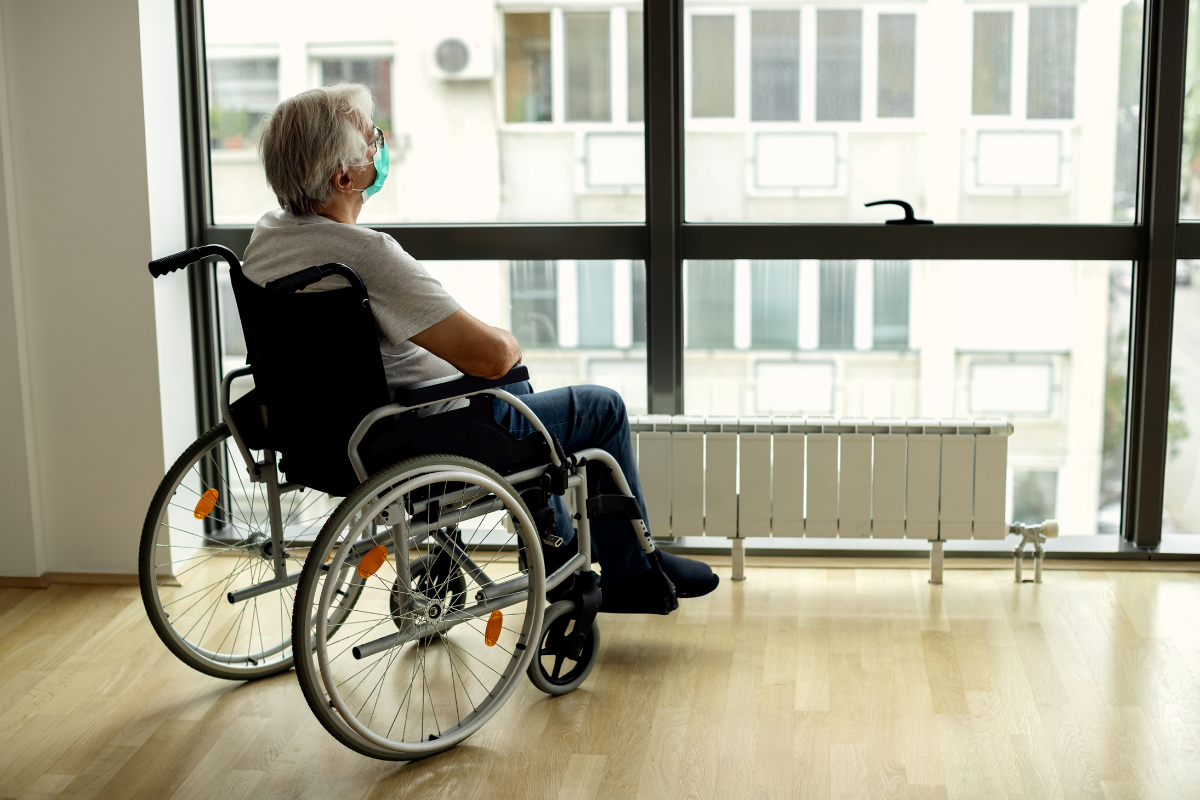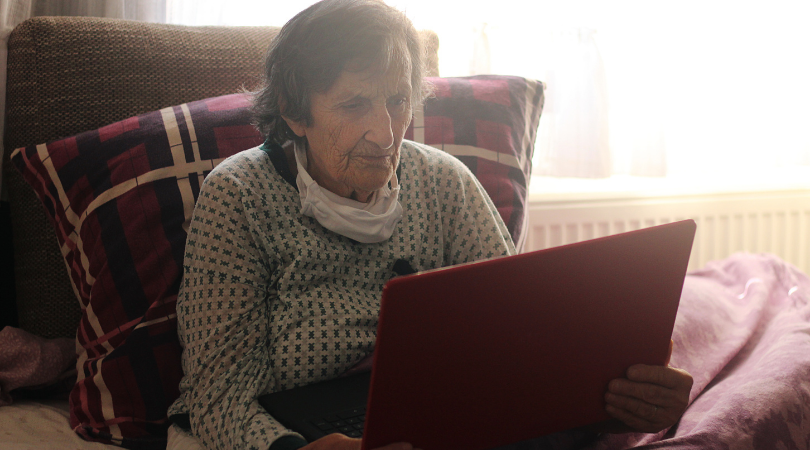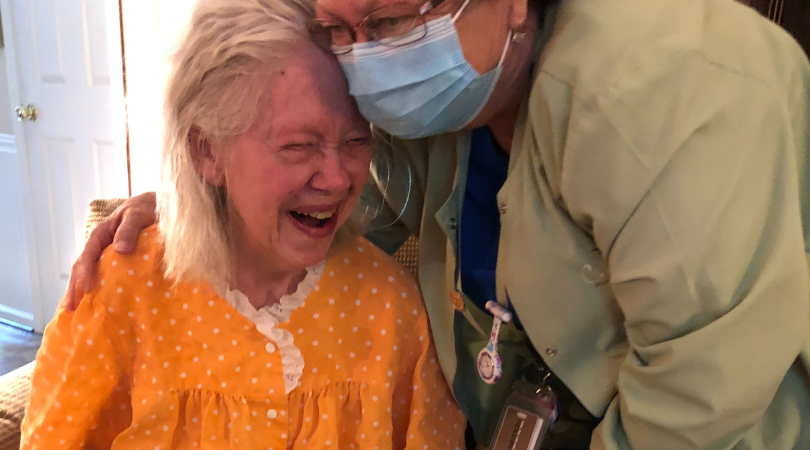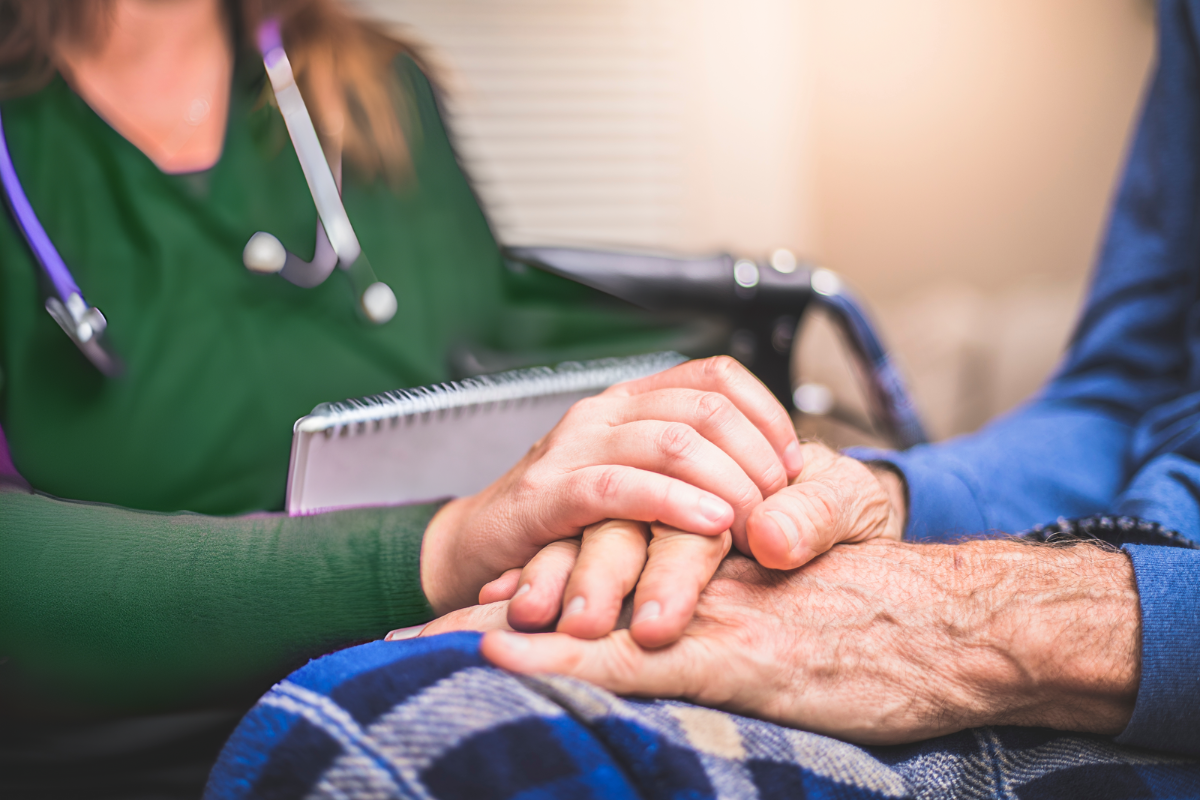How Our Country Can Better Support Seniors in a Pandemic

As much of the world has been affected by the COVID-19 pandemic, nursing homes have been among the hardest hit. Due to the panic and confusion that was brought along with the virus, many facilities had locked out care teams like Crossroads Hospice & Palliative Care, preventing us from providing our necessary work. These precautions were an effort to contain the virus and prevent transmission — but these services should have been considered essential.
These oversights are just one example of how the government could have done a better job supporting seniors during this time. As the country continues to navigate this pandemic, it’s vital to assess how the government can better support these senior citizens in the coming months — and be better prepared in the case that a situation like this happens again.

Supply caregivers with personal protective equipment (PPE).
Sandy Doolittle, LMSW, Support Services Director for Crossroads in Lenexa, KS, explains that there is a unique challenge in a situation like this with seniors due to their high risk of infection. But so long as caregivers are properly equipped, they are trained and capable of safely providing essential care.
“It’s important we ensure these caregivers have masks and other proper protective equipment,” Sandy says, “and that their entire team has the resources to be educated about what is happening.”
PPE shortages have been a topic of concern across the country as COVID-19 cases have risen. There have been numerous reports of ways in which essential workers can work to receive necessary PPE or extend the use of what they already have.
But these workers already have too much to focus on during these challenging times. Finding access to necessary equipment is the last thing they should be worried about. To assist them – and the seniors they are caring for – in this essential work, the government must do a better job of making this equipment readily available.

Provide support to prevent the negative effects of isolation.
Sandy goes on to explain that additional resources for families to see their loved ones should also be a priority in a situation like this.
She explains that “the isolation and the loneliness of the patients — and the loved ones on the other side — is devastating.”
Sandy says this is why she and her team are doing all they can to comfort patients and families alike.
“We’re calling the families more and trying to comfort them the best way we can,” she explains. “They’re dealing with so much loss with losing their visitation rights.”
Seniors are already more at risk for complications such as depression due to isolation on a regular basis. With the encouragement of quarantining and social distancing, it has become even more commonplace for these seniors to feel alone.

Allow hospice and palliative care providers to do their jobs.
Most of all, Sandy explains that there needs to be more help from the government so that hospice and palliative care teams can continue their essential work.
“I do wish they would force nursing homes to allow our hospice service staff to come in. Many patients aren’t allowed to have any type of comfort from any outsiders until they are about to die,” she says. “There was an initial overreaction to protect their facilities, all while not recognizing the truly essential people to allow in.”
All of that being said, Sandy suggests that, in the coming months, individuals – not just the government – should be turning their focus to supporting seniors in their communities.
“When all is said and done, there’s really not too much that the government can do. But there is a lot that individuals and volunteers can do. We need people for Meals on Wheels, to shop for seniors, to volunteer at nonprofits and helpful programs.”
Sandy says that Crossroads’ volunteers, who normally focus on in-person visits, are now doing things like writing letters and working on fun projects to give to isolated patients as gifts. She encourages people who are able, to focus on the ways they can help and advocate for these seniors during this time
Sandy explains that she and her team have their eyes on a list of all of their local nursing homes and what they’re changing each week. They’re continuing to update patients and families as things unfold.
“There’s such an enormous amount of loss that’s going around right now,” Sandy says, “for the patients, families, essential workers, volunteers. It’s really far-reaching, and my staff feels the pain that these families are feeling.”
But Sandy acknowledges, “we do make a difference. And we won’t let fear keep us down.”
To learn more about how Crossroads goes above and beyond for patients, give us a call at 1-888-564-3405.
If you found this information helpful, please share it with your network and community.
Copyright © 2020 Crossroads Hospice & Palliative Care. All rights reserved.




